What tea professionals need to start the week of July 7, 2014 —
Market researcher Technomic reports Beverages are Bubbling …Korea signs a trade agreement recognizing organic “equivalency” with USDA… Political outcry accompanies word of starvation deaths on India’s abandoned tea estates but no solutions are advanced…Suja Juice launches the first biodynamic, cold brewed, organic, non-GMO, cold-pressure teas…India’s May tea production tallies are down 12% following a 25% decline in April.
Bubbling Beverages
Chicago-based food service market research firm Technomic’s mid-year survey of menus identified six trends including this assessment of specialty teas.
 Beverages Bubbling Up: Specialty teas; lemonade-and-iced-tea blends; restaurant originals such as housemade sodas; smoothies beyond fruit, featuring surprising ingredients ranging from kale or peanut butter – all are seeing increases in menu incidence. Fast casuals lead the way: Pret A Manger added Beet Beautiful Juice with apple, carrot, beet and ginger; Grand Traverse Pie Company unveiled a Pie Smoothie; and Panda Express is testing an in-store tea bar. When it comes to adult beverage trends, hops rule; IPAs and other hoppy craft beers are proliferating in many incarnations.
Beverages Bubbling Up: Specialty teas; lemonade-and-iced-tea blends; restaurant originals such as housemade sodas; smoothies beyond fruit, featuring surprising ingredients ranging from kale or peanut butter – all are seeing increases in menu incidence. Fast casuals lead the way: Pret A Manger added Beet Beautiful Juice with apple, carrot, beet and ginger; Grand Traverse Pie Company unveiled a Pie Smoothie; and Panda Express is testing an in-store tea bar. When it comes to adult beverage trends, hops rule; IPAs and other hoppy craft beers are proliferating in many incarnations.
Also making the list:
Shrinking menus (selections trimmed at casual dining chains)
The next sriracha (hotter peppers, spicy mayo, aoili)
Asian-style small plates (dim sum style)
Brand name novelty snacks (Girl Scout Cookie cupcakes, Fritos Chicken Enchilada Melt)
Barbecue Love (authentic regional interpretations)
Learn more: Technomic Digital Resource Library
Organic Equivalency
The Organic Trade Association (OTA) last week welcomed a new organic equivalency arrangement between the United States and Korea, saying it reopens a critically important Asian market for U.S. organic processed food products, and will create jobs and opportunity for the American organic food and farming sector.
“We extend our thanks and congratulations to the officials at the U.S. Department of Agriculture and the Office of the U.S. Trade Representative for their success after a year of rigorous negotiations,” said Laura Batcha, CEO and Executive Director of OTA. “OTA and the U.S. organic industry have worked diligently to help make this happen. This new pact streamlines the trade of organic processed food products between the two countries while still upholding the highest standards of organic oversight. It’s a win for the organic sectors and for the consumers of both nations.”
Estimates are that under the new streamlined trading system made possible by this arrangement, American exports of organic processed foods and beverages to Korea, which were valued at around $35 million in 2013, will more than double over the next five years.
The U.S.-Korea equivalency arrangement was formalized on June 30.
Korea is the fifth-largest foreign market for U.S. agricultural products. The organic equivalency pact is in addition to the U.S.-Korea Free Trade Agreement signed in March 2012.
Source: Organic Trade Association, USDA’s NOP website.
Suja Biodynamic Teas
SAN DIEGO, Calif. – Suja Juice Co. has launch of its first line of cold-brewed, organic, non-GMO Project Verified and cold-pressured teas. The four new tea flavors, Chunmee Tropical, Honeybush Peach, Jasmine Pomegranate and Unsweetened Biodynamic Black are available exclusively at Whole Foods Markets nationwide as a part of the Suja Elements™ organic, non-GMO, cold-pressured line.
 The Unsweetened Biodynamic Black flavor is Whole Foods Market’s first Demeter Certified Biodynamic® ready-to-drink tea. As with all other Suja Elements flavors, 20 cents from each bottle of Suja Elements tea sold will be donated to select charities as part of the Suja Elements Cause Collective™.
The Unsweetened Biodynamic Black flavor is Whole Foods Market’s first Demeter Certified Biodynamic® ready-to-drink tea. As with all other Suja Elements flavors, 20 cents from each bottle of Suja Elements tea sold will be donated to select charities as part of the Suja Elements Cause Collective™.
The line was co-developed with Whole Foods Markets. Retail price is $3.99 per 12 ounce bottle. In April 2014, out of its thousands of national suppliers, Whole Foods Market named Suja its “Non-Perishable Supplier of the Year” for outstanding performance, expertise in the industry, commitment ethical sourcing and partnership in product development.
Source: Suja Juice Co.
Assembly Outcry Follows Starvation Revelations
Reports of starvation deaths on abandoned tea gardens enraged members of the Assembly and led India’s press to shine a light on conditions in gardens in Darjeeling the Dooars and Terai.
The Times of India conducted an investigation detailing the plight of workers on several gardens, reporting widespread malnutrition, disease and 14 starvation deaths at Bundapani Tea Estate with 10 at Dheklapara Tea Estate. Both gardens are in Alipurduar.
Many tea workers on these estates have attained the age of retirement and have nowhere to go as their pensions are held up after companies closed the gardens, reports the Times. “The younger people receive INRs1,500 per month under the FAWLOI (Financial Assistance for Workers of Locked Out Industrial Units) scheme. When I went to register, I was told that I am not eligible as I have crossed the age of 58. What about my years of service that were left when the garden shut down? How am I supposed to take care of my family?” tea worker Ram Tanti at Dheklapara told the newspaper. The garden has been closed 14 years.
The revelations caused political outcry. In the Assembly Opposition Leader Surjya Kanta Mishr, with the Left Front, said that 120 starvation deaths on tea gardens have been reported to the state in the past three years. Twenty gardens have closed during the Trinamool Congress, he said.
Food Minister Jyotipriya Mullick said the deaths had nothing to do with starvation, according to reports in The Hindu. Workers continue to receive allotments of kerosene, rice and 125 grams of sugar per person, he said.
Dr. Mishra countered that the rice is unfit to eat. He led a walkout of Left Front MLA’s who protested, holding up posters asking “why will the workers of tea gardens die of starvation”
“The deaths in tea gardens used to occur in the past. The situation has changed now but more change is required,” said Parliamentary Affairs Minister Partha Chaterjee. He said the situation in the tea gardens had worsened during the 34 years of the Left Front government and they had no right to talk on the issue.
Mullick has assigned three food inspectors to visit the gardens in North Bengal and make weekly reports.
Under the Tea Act, the Tea Board of India can assign new owners to any estate that has failed for a period of three months. However, new owners face difficult challenges repairing gardens abandoned since the 1990s. Litigation complicates financing, factories require extensive repair, the most skilled workers have departed and untended bushes are costly to replace and will not produce acceptable tea for three or more years.
Tea Association of India Secretary General PK Bhattacharya told the Times that most gardens cannot reopen without a concerted effort from state and federal governments.
As many as 30,000 workers remain in housing on 23 gardens abandoned in the past several years.
Sources: The Hindu, The Times of India
Tea Production Down
 KOLKATA, India – India’s unusually dry weather led to a 12% drop in tea production in May, according to the Tea Board.
KOLKATA, India – India’s unusually dry weather led to a 12% drop in tea production in May, according to the Tea Board.
Production in May fell to 91.4 million kilos, down from 103.7 million kilos in 2013. April production was down 25% compared to the previous year.
The total shortfall for the country is -8.5% for the period January through May, which includes the entire first flush harvest and much of the second flush.
The India Tea Association reports Assam gardens received 55% less rainfall than normal; Darjeeling received 60% less rain than normal and rainfall totals in the Dooars and Terai were down 40-60%. These conditions make it unlikely that India will match last year’s record output. Because domestic demand for tea continues to grow, the shortfall may hamper suppliers’ ability to maintain quality and meet export commitments.
Source: Tea Board of India
? ? ?
Tea Biz serves a core audience of beverage professionals in the belief that insightful journalism informs business decision-making. Tea Biz reports what matters along the entire supply chain, emphasizing trustworthy sources and sound market research while discarding fluff and ignoring puffery.
Tea Biz posts are available to use in your company newsletter or website. Purchase reprint and distribution rights for single articles or commission original content. Click here for details.

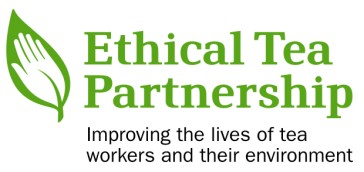



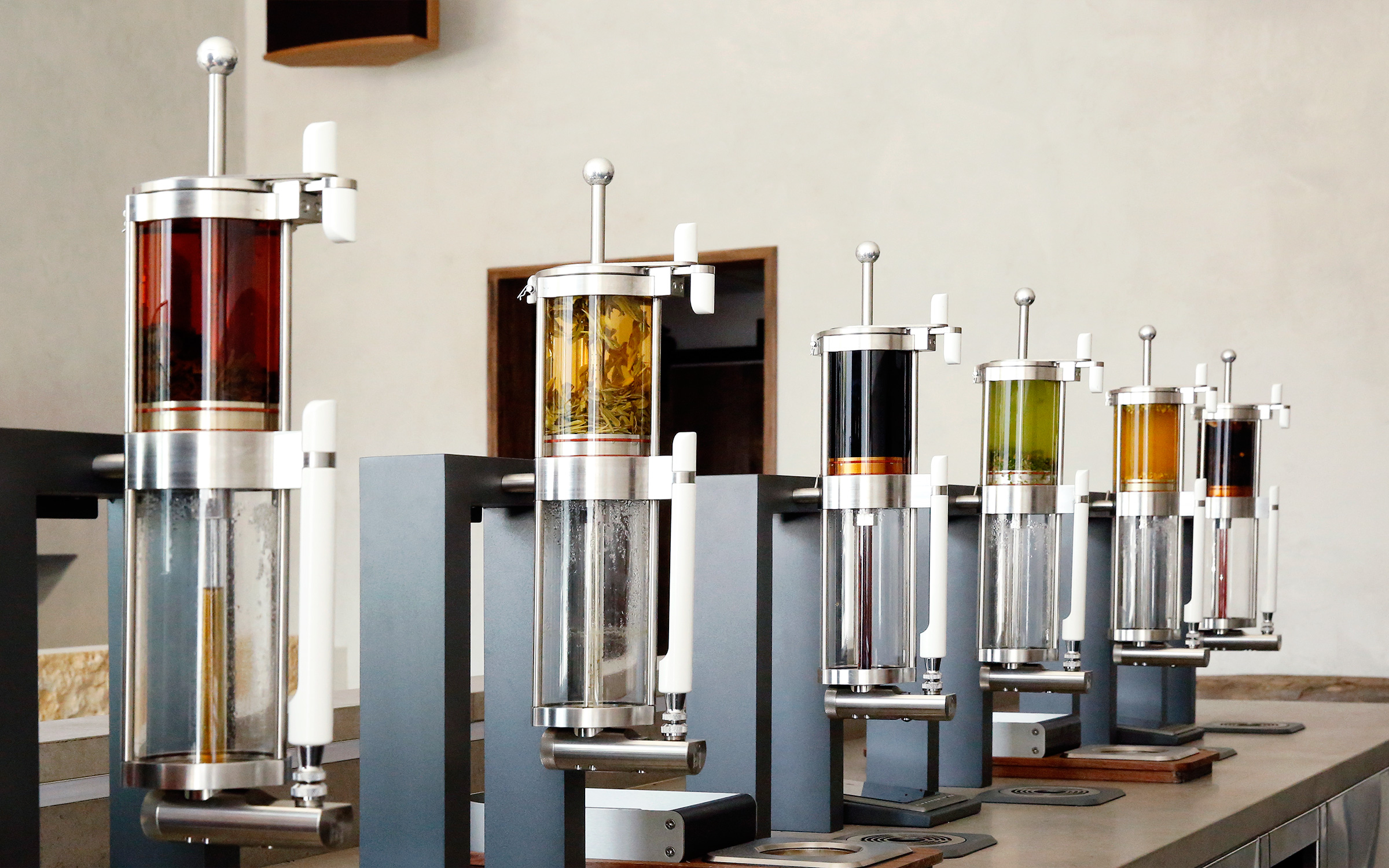
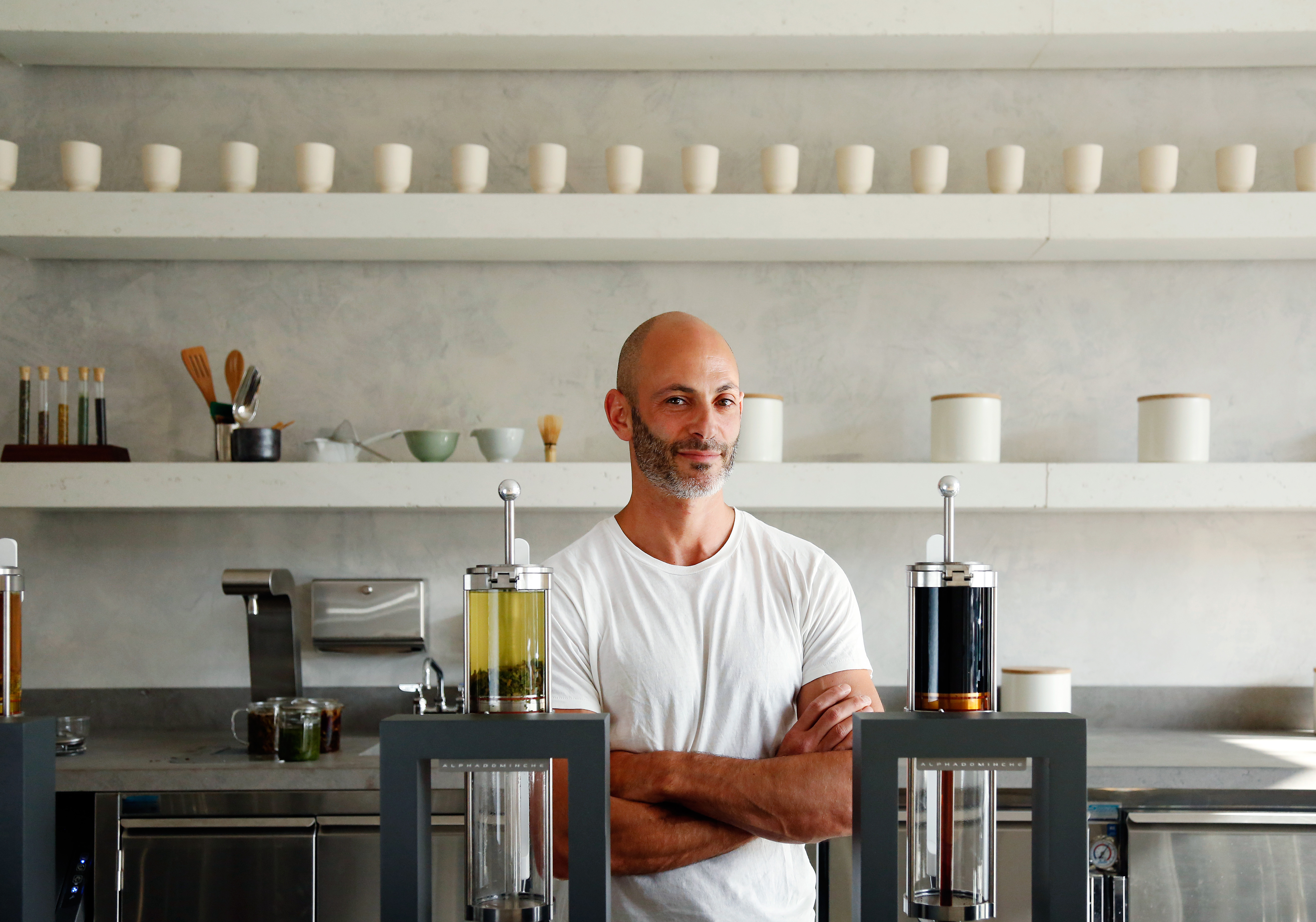
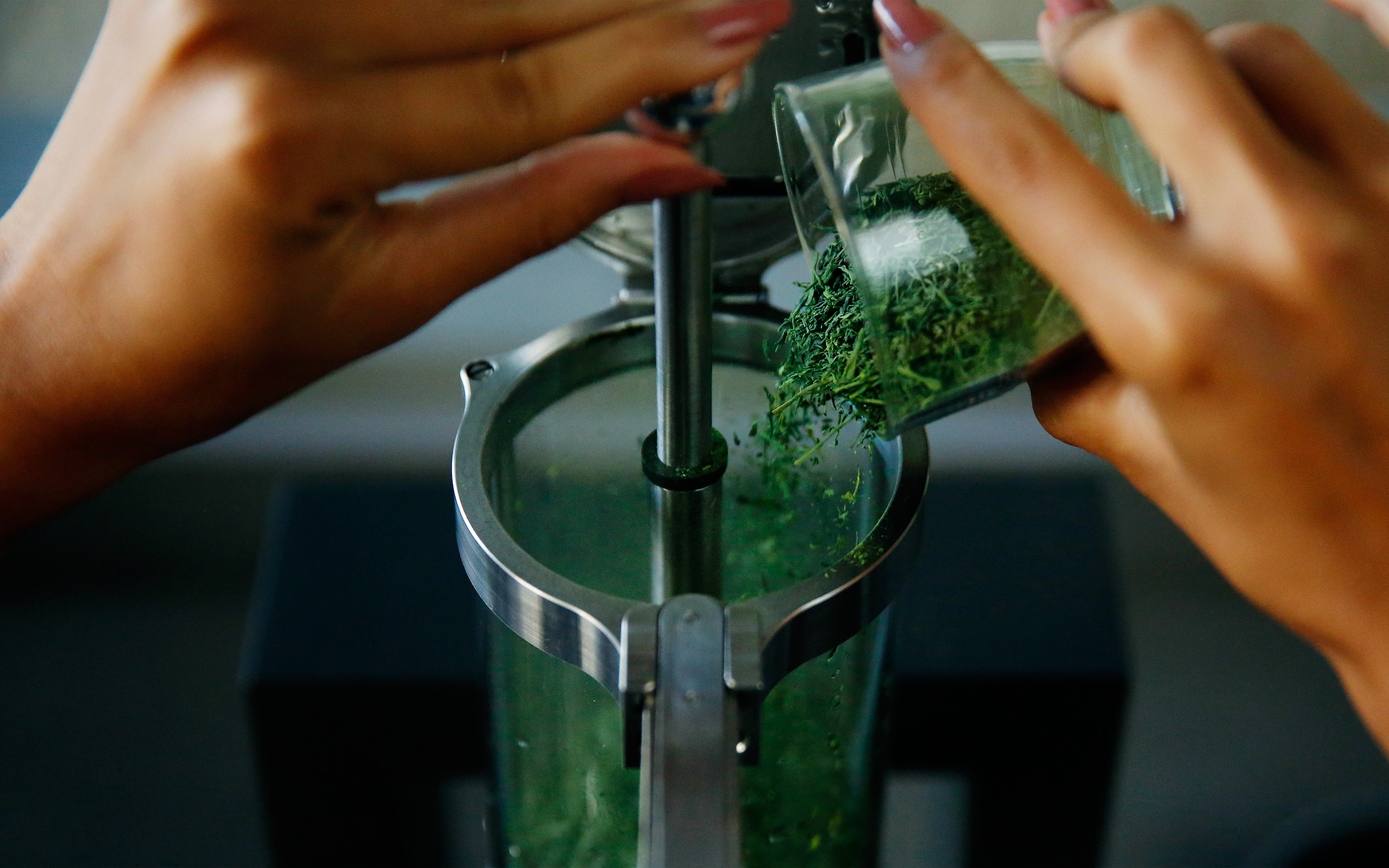




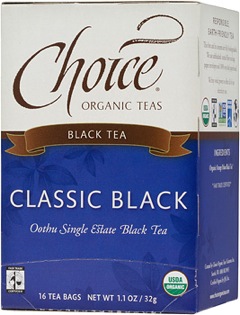



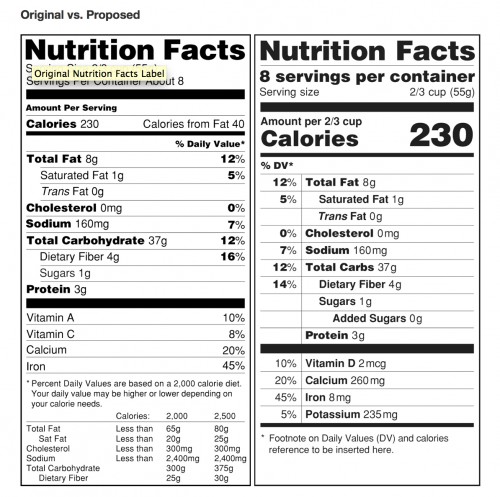 There are two fundamental parts to the proposed changes. The first addresses the actual nutritional information being reported. There would be a reevaluation of the daily nutritional values of certain vitamins and minerals. Vitamin D would be added, while Vitamins C and A would be eliminated. Additional information about sugar would be provided as well. Serving sizes would be most affected by the rules rewrite. The new serving sizes would better reflect how people actually eat and drink today. For example, a 20 ounce bottle of cola would no longer list the contents as two servings. A bottled drink that would usually be consumed during one sitting would need to have nutritional information reflect the values for the entire bottle. Larger bottles would list the amounts for a single serving, as well as the values if the entire bottle is consumed. The second change impacts the actual layout of the label. Calories would become more prominent. The chart showing daily nutritional values would be reversed so the percentages for each item would be listed before the actual amounts.
There are two fundamental parts to the proposed changes. The first addresses the actual nutritional information being reported. There would be a reevaluation of the daily nutritional values of certain vitamins and minerals. Vitamin D would be added, while Vitamins C and A would be eliminated. Additional information about sugar would be provided as well. Serving sizes would be most affected by the rules rewrite. The new serving sizes would better reflect how people actually eat and drink today. For example, a 20 ounce bottle of cola would no longer list the contents as two servings. A bottled drink that would usually be consumed during one sitting would need to have nutritional information reflect the values for the entire bottle. Larger bottles would list the amounts for a single serving, as well as the values if the entire bottle is consumed. The second change impacts the actual layout of the label. Calories would become more prominent. The chart showing daily nutritional values would be reversed so the percentages for each item would be listed before the actual amounts.